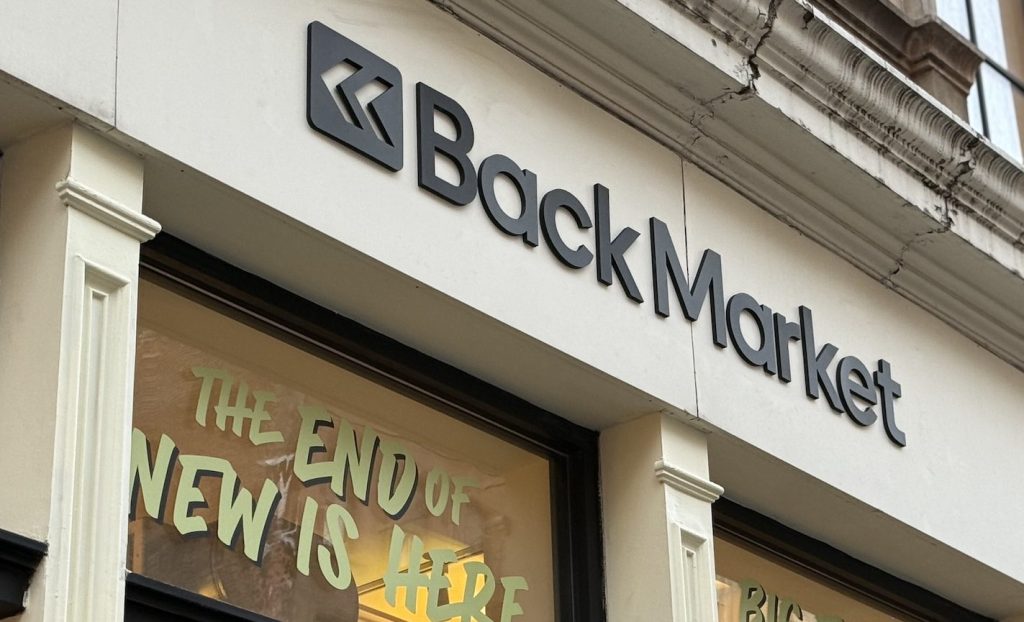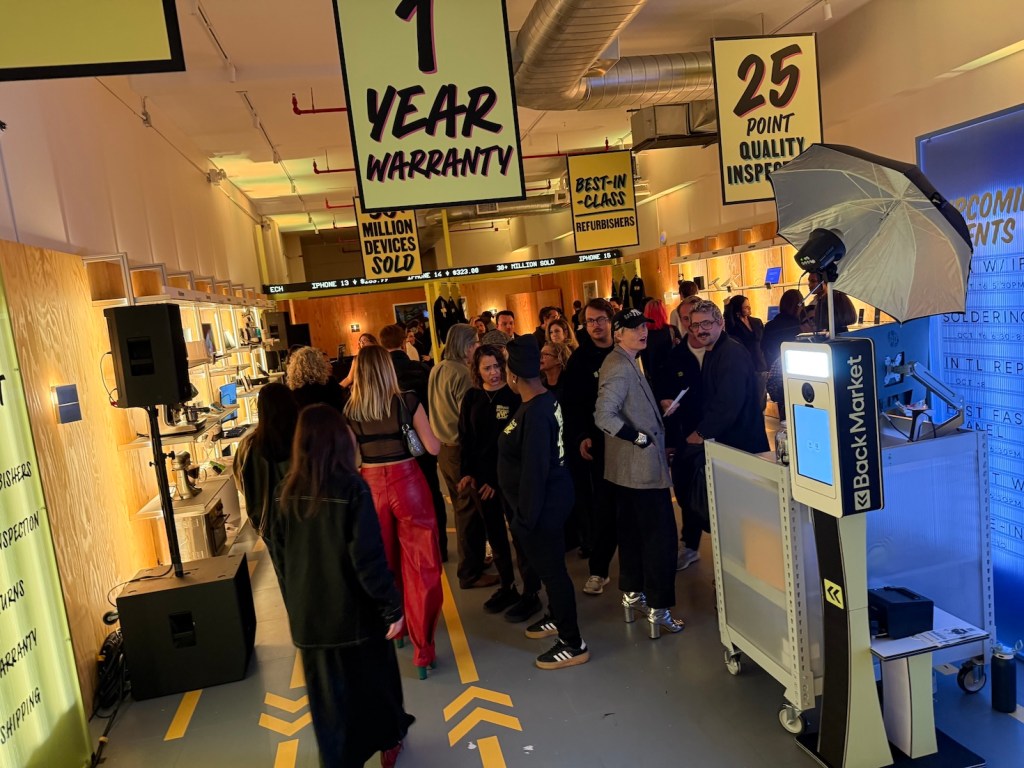Why secondhand tech site Back Market opened a pop-up store in NYC
The French startup, valued at $5.7 billion in January 2022, projects close to $3.5 billion in sales for 2025. Read More

- The market for refurbished tech is forecast to reach $434.4 billion by 2034.
- Back Market is using the store to gather customer data and hasn’t committed to a permanent retail presence.
- The 10-year-old company offers a business-to-business service used by Kering and Air France.
Back Market, an e-commerce startup that specializes in secondhand electronics and appliances, is piloting a New York retail location amid double-digit sales growth projections both for its own business and the market category.
The 1,500-square-foot store in lower Manhattan offers products priced 30 percent to 70 percent less than new models — from gaming consoles, notebook computers and mobile phones to household appliances. A digital display refreshes in real time with prices from its e-commerce site, and that data is used to offer in-store dynamic pricing.
The site will be open through December, with the goal of collecting information about consumer preferences and educating them about alternatives to “fast tech” that is literally designed to become obsolete, said Lauren Benton, general manager of the U.S. operations for Back Market.
“To really shift behavior, we can’t just be an online site. We need to meet customers where they are,” she said.
Although Back Market hasn’t committed to opening a permanent retail location, it’s using the New York store to gauge consumer trust in refurbished gear, draw more attention to its online site and gather more information about future buying intentions.
“The priority is the opportunity to hold our customers’ hands, and learn as much as we can,” Benton said.
Many factors are driving cost-conscious consumers to buy secondhand appliances and technology, including inflation, unpredictable U.S. import tariffs and higher prices on new products. Back Market tackles some of those dynamics head on, by merchandising “new” versus “old” models and challenging people to identify which is which.
The store also offers seminars about repair, and repair services in collaboration with long-time partner iFixit, which publishes repair videos and how-to guides.

Fast growth
Paris-based Back Market, founded in 2014, has raised more than $1 billion in venture capital from firms including General Atlantic. In January 2022, it was valued at $5.7 billion.
Back Market projects almost $3.5 billion in sales for 2025: transactions grew more than 30 percent in the second quarter alone, and it has more than 17 million customers. The company has sold more than 30 million devices since 2014, which it estimates helped avoid 2 billion kilograms of carbon emissions along with the chemical concerns of electronic waste. France is its biggest market, followed by the U.S.
The secondhand tech category was valued at about $94 billion in 2023 and is forecast to grow at a pace of 15 percent annually, reaching $434.4 billion by 2034. High–profile retailers including Amazon, eBay and Walmart all support robust e-commerce sites for technology, appliances and electronics.
“The shift away from fast tech is no longer a niche trend, it’s becoming a cultural norm,” said Thibaud Hug de Larauze, co-founder and CEO of Back Market, when the company announced its latest projections. “Consumers are choosing durability, repair and reuse because it makes sense for their wallets and the planet.”
Back Market estimates that refurbished products account for 36 percent of all tech sales. Big brands such as Hewlett Packard and Lenovo are prioritizing design for repair, reuse and refurbishment, and training their sales teams to represent these products to customers. Lenovo, for example, recycled or reused about 129 million ThinkPad computers between 2020 and 2023.
What differentiates Back Market from its rivals is an obsessive focus on verifying the quality of products accepted for resale. All items sold by Back Market are inspected and refurbished to certain specifications. Products come with a one-year warranty.
The company created a business-to-business version of its service, which more than 6,000 companies including Kering and Air France use to buy refurbished IT equipment. This is a practice that’s becoming more common among big companies that have big emissions or electronics recycling goals.

Subscribe to Trellis Briefing
Featured Reports

The Premier Event for Sustainable Business Leaders
















